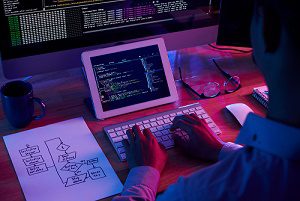About
With the increasing demand for faster, more efficient biotechnological processes, robotics and automation have emerged as transformative tools in high-throughput biotechnology. This 1-month program provides an in-depth exploration of the technological advancements driving automation in biotechnology. From automated sample processing to robotic platforms for drug discovery, the course covers key aspects of robotics and automation that are revolutionizing the biotech industry.
Participants will delve into the integration of automation with traditional biotechnological workflows, focusing on improving productivity, precision, and data reproducibility. Through practical sessions and case studies, learners will explore cutting-edge applications such as automated liquid handling, robotic cell culture systems, and AI-driven robotics in genomics and proteomics. This program prepares professionals to lead automation-driven innovations in biotechnology.
Aim
This program aims to equip participants with a comprehensive understanding of the role of robotics and automation in high-throughput biotechnologies. It focuses on streamlining biotechnological processes, enhancing efficiency, and reducing human intervention. Participants will gain hands-on experience with robotic systems, automation tools, and their applications in biotechnological research and industry.
Program Objectives
- Understand the principles of robotics and automation in biotechnology.
- Learn how high-throughput technologies integrate with automated systems.
- Design and implement robotic workflows for biotechnology applications.
- Explore real-world applications of robotics in research and industry.
- Analyze the impact of automation on productivity and data integrity.
Program Structure
Week 1: Introduction to Robotics and Automation in Biotechnology
Overview of Robotics and Automation in Biotech: Past and Present.
High-Throughput Technologies and Their Role in Modern Biotechnology.
Fundamentals of Robotic Systems and Their Integration in Labs.
Automation in Bioprocessing: Industrial Applications.
Week 2: Tools and Technologies for Automation
Automated Liquid Handling Systems: Operation and Applications.
Robotic Cell Culture Systems: Enhancing Throughput and Precision.
High-Throughput Screening Automation: Drug Discovery Applications.
AI-Driven Robotics in Genomics and Proteomics.
Week 3: Designing and Implementing Robotic Workflows
Workflow Automation: From Sample Preparation to Data Analysis.
Robotic Systems in Biomanufacturing and Quality Control.
Case Studies: Successful Integration of Robotics in Biotechnology Labs.
Challenges and Solutions in Biotech Automation.
Week 4: Future of Robotics and Automation in Biotechnology
Innovations in Robotic Systems for Biotechnology.
AI and Machine Learning in Automated Biotech Workflows.
Preparing for Careers in Biotechnology Automation.
The Future of High-Throughput Biotechnologies: Trends and Innovations.
Participant’s Eligibility
- Undergraduate degree in Biotechnology, Bioengineering, Robotics, or related fields.
- Professionals in the biotechnology or automation sectors.
- Individuals with a keen interest in robotics and automation in life sciences.
Program Outcomes
- Mastery of robotics and automation in high-throughput biotechnology.
- Proficiency in designing automated workflows for biotechnology labs.
- Practical skills in automated liquid handling and robotic cell culture systems.
- Understanding of the integration of AI and robotics in biotechnology.
- Knowledge of real-world applications and challenges in biotech automation.
Program Deliverables
- Access to e-LMS
- Real-Time Project for Dissertation
- Project Guidance
- Paper Publication Opportunity
- Self Assessment
- Final Examination
- e-Certification
- e-Marksheet







Reviews
There are no reviews yet.